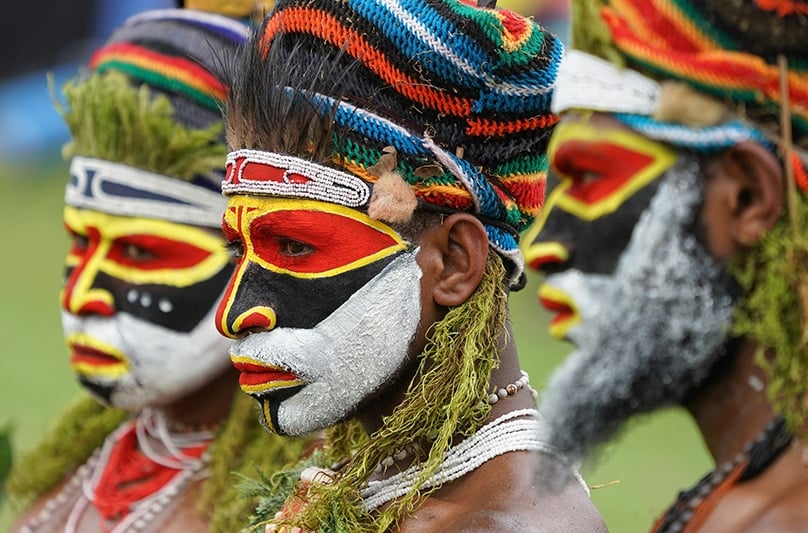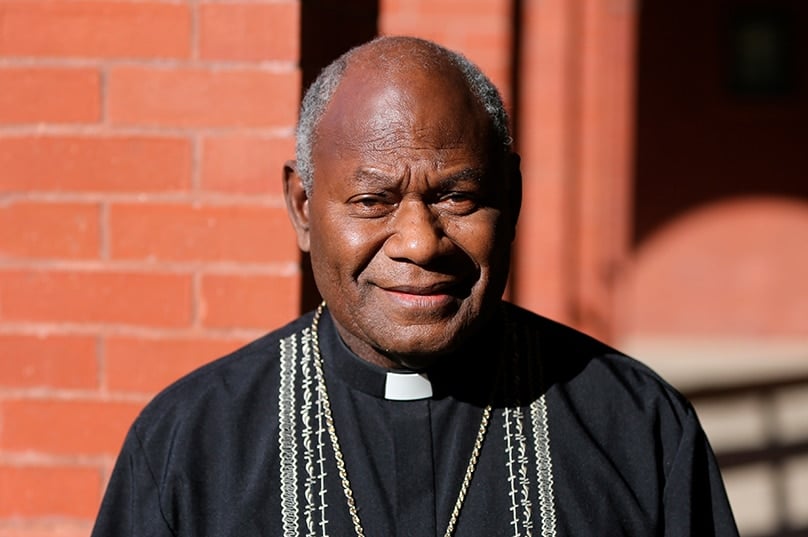
An apostolic visit from Pope Francis could do much good in Papua New Guinea, the largest island nation in the Pacific Ocean, but despite confirmation coming from Rome, no one on the ground seems to know whether it’s on.
Months of speculation hardly ceased with the late-January announcement from Rome, with uncertainty only seeming to grow over whether the 87-year-old pontiff would make the long-haul journey to Oceania this year.
The PNG visit penciled in for 25-28 August would be a shot in the arm for the country, which is struggling with social and economic instability, high youth unemployment, rising cost of living and the effects of rising sea levels and deep-sea mining.
The largely Christian country with an estimated population of around 10 million is also reeling from a deadly spate of violent protests and looting in Port Moresby on 10 January, after cuts to public servant salaries the government claimed were accidental.
Sydney Catholic Papua New Guinean community leader Daniel Luke told The Catholic Weekly he is delighted that the pope intends to visit his home country and says PNG’s recent bad news is only a part of the story.
He’s praying that Pope Francis will use his apostolic visit to announce the canonisation of Blessed Peter To Rot, the locally-born catechist and father of three who was imprisoned by Japanese occupiers during World War II, during a crackdown on Christianity.
“Peter To Rot was beatified at the same time as Mary MacKillop, during the same trip by Pope John Paul II to our part of the world in 1995 and we have been praying for this for so long,” Luke said.
“But people in PNG don’t have the same resources to investigate miracle healings as in other countries, which may be a reason why it hasn’t happened.”
Fr Giorgio Lucini, General Secretary of the Catholic Bishops Conference of Papua New Guinea and Solomon Islands added to confusion about whether the trip is on or not.
The PNG Post-Courier reported on 8 February that Fr Giorgio said, at a press conference, that the local church won’t begin gearing up for the visit until it gets an official green light from the government—and the Vatican.
“We are at least months away from any information that will confirm the pope’s visitation,” he said.
PNG’s foreign minister Justin Tkatchenko must have missed the memo about staying tight-lipped.
On 25 January he told local media the government had received “official” notice of the pope’s intention to visit and a planning committee had been set up to work closely with the country’s apostolic nuncio, but a Vatican spokesperson cautioned that plans are in “preliminary stages.”
The Catholic Weekly’s request for a comment from the Catholic Bishops Conference of Papua New Guinea and Solomon Islands yielded a reply from the Apostolic Nunciature saying that “on several occasions Pope Francis has expressed his desire to visit PNG and we are working to make this possible, but so far we have no confirmation of the papal trip.”
“Only the Holy See issues formal confirmation of an Apostolic Trip by the Holy Father,” the statement said.
A statement from the Vatican press office said “the program of the Apostolic Journey of His Holiness Pope Francis, has not yet been published.”
Once the details are worked out, the visit will be the third time a pope has travelled across the world to reach the country and is expected to start in the capital, Port Moresby, followed by one or two coastal cities in the north.
Pope John Paul II went there in 1984 and then again in 1995 for the beatification of Peter To Rot.
Pope Francis’ visit will accord with his desire to bring the peripheries closer to the centre of the church’s life. That includes the smaller nations in geographical peripheries as well as the concerns of their peoples.

In 2016 Pope Francis appointed the Archbishop of Port Moresby John Ribat, an advocate for Pacific Island nations’ battles against the effects of climate change and deep sea mining, as the country’s first cardinal.
Director of the MSC Mission Office Fr Roger Purcell MSC, a friend of Cardinal Ribat, told The Catholic Weekly it will mean much to Papua New Guinean Catholics to see their leader side-by-side with the Holy Father in their own land.
“They will love having the pope visit and are proud of the cardinal so it will be very special for them,” he said.
Broken Bay Bishop Anthony Randazzo, who is the president of the Federation of Catholic Bishops Conferences of Oceania, has welcomed the news.
He said while Catholics make up around 26 per cent of the population of PNG he was sure all religious leaders, churches, and government leaders would provide “a warm, traditional cultural welcome.”
“The first visit from the Pope to a Pacific nation like Papua New Guinea in our Oceania region in nearly 30 years will mean a great deal to the people,” Bishop Randazzo said in a statement.
St Vincent de Paul Society national president Mark Gaetani said he hopes the visit will shed light on the plight of former Manus Island refugees who are stranded in PNG, having fled conflicts in Afghanistan, Sri Lanka and the Middle East.
“We hope that long before His Holiness arrives these long-suffering people will have been brought to Australia for proper humanitarian care,” Gaetani said.
“If not, we hope he will be given the opportunity to see some of the appalling conditions in which they are still living,” he said.
“Our position aligns with that of the Catholic Bishops Conference of PNG and the Solomon Islands which In December asked the Australian Government (in a letter to Home Affairs Minister, Clare O’Neil) to end these people’s suffering and bring them to Australia urgently.”
The church plays an important role in providing essential education, healthcare and other services in PNG, especially in its poorer rural populations.
Following last month’s riots in which more than 20 people died, Cardinal Ribat mourned the “tragic loss of human lives” and denounced the involvement of Christians in the looting, destruction and burning of shops and other buildings.
“What can we do to correct this and to ensure that it does not happen again in the future?” he wrote in a statement.
“This will be the work for all the citizens in our nation … our prime minister, members of parliament, public servants, police, defence, leaders in our churches and villages throughout PNG.”
Whether any of these aspirations are met, Daniel Luke knows a visit will mean a lot to the people of PNG.
“Not only the Catholics, but all of the church-going people will join together to make Pope Francis feel welcome,” he said.
“I have relatives in Port Moresby and I’m thinking of going over for it. I’d love to be there.”
